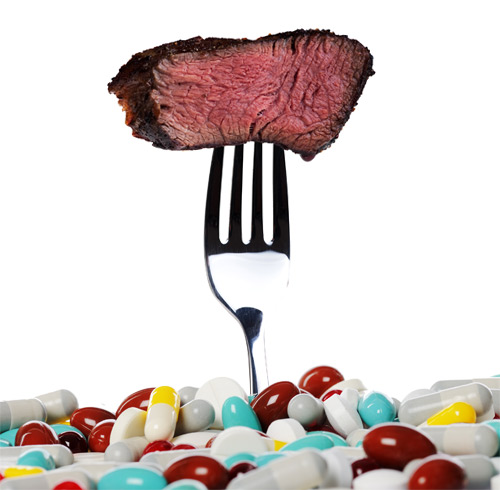From Britain’s horsemeat scandal to salmonella or E. Coli outbreaks to debates over GMO labeling, food safety concerns have taken center stage and garnered international headlines this summer. These issues have also shed light on the difference in food safety regulations from country to country. And which products seem to be the most controversial? Animal products.
Here are five commonly eaten foods in the US that have been banned in other countries based on health concerns:
Meat from Animals Fed Ractopamine: Ractopamine is a growth-promoting drug that’s been banned in the European Union, China, and Taiwan — yet it’s fed to pigs, cows, and turkeys in the US. According to an article in Consumer Reports, the European Food Safety Authority has been unable to confirm a safe level of ractopamine in food, noting it can cause anxiety and an increased heart rate in humans. As noted by the FDA, it can also increases injury and lameness in pigs.
Farmed Salmon: As overfishing threatens the health of our oceans, the industry is increasingly shifting to a factory farming model known as aquaculture. Factory-farmed fish are intensively confined and are fed a steady diet of antibiotics and other drugs to combat the filthy and unnatural conditions. This can result in gray-colored flesh, which is then combated by dosing the fish with synthetic astaxanthin made from petrochemicals – which is banned in Australia and New Zealand.
Arsenic-laced Chicken Meat: Arsenic is well known as a toxin and carcinogen. Yet it’s often added to chicken feed in the US to help promote growth and kill parasites. In 1999, health concerns prompted the European Union to ban arsenic-based feed additives, and earlier this year Maryland became the first US state to do the same.
Chicken washed with Chlorine: Chickens raised in the US are crammed by the thousands inside massive warehouses and spend their lives standing, sleeping, and eating in their own waste. After they’re slaughtered, chicken carcasses are routinely washed in chlorine and other chemicals to reduce pathogens in the meat. Little research has been done on whether these toxins linger in or on the meat. These chemical baths are banned in the European Union as is US poultry treated with these chemicals.
Milk from Cows given rBGH: rBGH, commonly known as bovine growth hormone, is a synthetic hormone injected into cows to increase milk production. While legal in the US, rBGH is not permitted in Australia, New Zealand, Canada, Japan, and the entire European Union due to human health concerns.
Take steps to protect your health, the environment and animals by choosing to leave animals off your plate. Get started with these quick and easy recipes.

